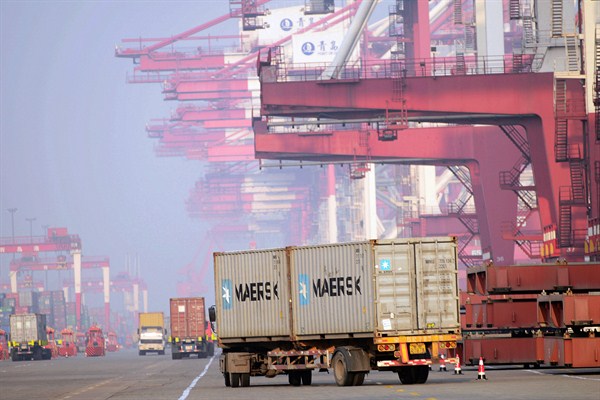Last week, China brought formal legal challenges against the United States and the European Union for their failures to recognize the Asian giant as a “market economy” according to World Trade Organization rules. China’s current “nonmarket economy” designation allows Washington and Brussels to use a special tariff formula to stem the flow of low-priced imports in anti-dumping cases. Contrary to initial media reports of a trade war, Beijing’s WTO actions sent a positive signal for otherwise bleak trade relations between these major powers—at least in the near term.
But longer term, the squabble over China’s market economy status is just the tip of the iceberg. China’s decision to lodge a formal dispute at the WTO also starts a ticking clock. The U.S. and the EU must find another forum to creatively negotiate a comprehensive deal with Beijing over an even larger package of economic concerns.
At first blush, China triggering a WTO dispute is actually a good sign, for at least two reasons. First, it shifts the market economy spat out of crisis mode during the changeover in U.S. administrations. WTO disputes take at least three years to fully play out. Beijing’s decision provides the incoming Trump administration with the breathing room needed to digest the full range of U.S. trade concerns and to formulate a comprehensive strategy. It also provides a chance for Brussels to get its house in order.

